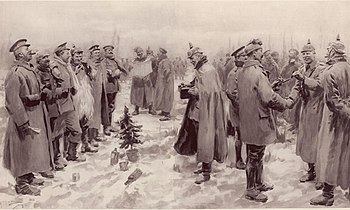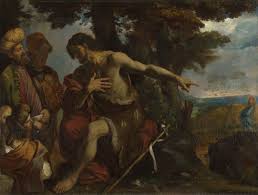On December 16, 2014 Taliban terrorists
entered a school in Peshawar, Pakistan and massacred 133 school
children whose only crime was that they were children of the soldiers
of a regime with whom the terrorists disagreed. On December 14, 2012,
two years ago but not to be forgotten by any of us, a madman with an
assault rifle murdered 20 children and six of their teachers and
administrators at a school in Newtown, Connecticut.
 The deaths of these Holy Innocents
leave us shaken, frightened, and questioning of the goodness of God.
From the time of the Epiphany gospel (Matthew 2:1-18) to our own, the
world has seen a sickening number assaults on innocent life, and
nothing can strike us more deeply than the senseless deaths of
children. And yet we must face the realities of this violent world if
we are to hear the grace of the gospel.
The deaths of these Holy Innocents
leave us shaken, frightened, and questioning of the goodness of God.
From the time of the Epiphany gospel (Matthew 2:1-18) to our own, the
world has seen a sickening number assaults on innocent life, and
nothing can strike us more deeply than the senseless deaths of
children. And yet we must face the realities of this violent world if
we are to hear the grace of the gospel.
In response to the bumper-sticker
demand to “Keep Christ in Christmas,” Lutheran pastor Nadia
Bolz-Weber recently preached a stirring sermon on keeping Herod in
Christmas. Pastor Bolz-Weber lamented the biblical inaccuracies of
pretty Christmas cards depicting Magi on camels worshiping Christ in
the stable along with adoring shepherds and angels. The reality of
the gospel nativity story (or, more accurately stories as
our Hallmark iconography actually combines both the accounts of
Matthew and Luke) is far less pleasant. In a desire to feel all warm
and fuzzy during the holiday season, we often forget the horrible
tale related in Matthew 2:13-18, the tale of the jealous tyrant Herod
and his attempt to eliminate the rival king Jesus by massacring all
the male children of Bethlehem.
To be
honest, the massacre described in Matthew may not have actually taken
place as it is not recorded by any of the historians of the time. It
has also been suggested that if the event actually did
occur, the number of boys under age two in the tiny town of Bethlehem
at that time was not significant enough to rate a mention. We do
know, however, that Herod the Great was a ruthless despot who was not
above murdering his wife and two of his own sons as well as
committing other acts of brutality in order to secure his power over
the people. As such, he stands in a long line of power-mad beasts
stretching down past Hitler and Stalin to Bashar Al-Assad, Joseph
Kony and others who think nothing of robbing innocents of their
lives. Whether Herod committed the act attributed to him in the bible
or not, we cannot deny that such acts have been and constantly are
repeated on this violent and sinful planet.
But
Matthew uses this story for specific reasons of his own. Jesus
parallels Moses as a child in danger from the power structure of his
day. Yet in spite of the power on the throne, the power of God
rescues the boy child so he can rescue his people. Joseph the
carpenter parallels Joseph the son of Jacob who journeys down into
Egypt—an unwelcome journey, but one which will ultimately be for
the salvation of the nation. The Jewish audience of Matthew's time
would have understood these allusions, and would look to Jesus as the
new Moses.
What
was significant to the early Christians as well as to us in this
story is that the birth of Jesus was a light to the Gentiles, to
foreigners and people who are just not like us. The Magi described
were probably ancient astrologers who believed that astronomical
events accompanied the birth of great people. (The number three comes
from the three types of gifts they bring, but the bible does not
specify how many Magi there were. They became “kings” in later
Christian history when churchmen attributed the reference in Psalm 72
to kings bringing tribute to the messiah to the Magi. Just thought
you should know this!)
The
early church depicted these non-Jews as a young man, a middle-aged
man, and an elderly man in their iconography to represent that Jesus
came for all the ages. They also present the Magi as a
Middle-Easterner, a European, and a sub-Saharan African to proclaim
that Jesus came for all races and nations. It must have been
inspirational for these early Christian artists to proclaim that,
despite official
persecution from Jews and the Roman Empire, people on three
continents were worshiping Jesus as their Lord and Savior within a
generation of his crucifixion.
But
Matthew's story has one more important symbolic element. The Magi are
from the East, and they follow a star. That is, they are from the
point where the light comes, where the sun rises, and they seek the
LIGHT and find it in Jesus.
No
matter how evil and frightening the darkness of this world is—in
Matthew's day or our own—we still find the light in Christ. In
Jesus we see unconditional love and acceptance. We see the beauty of
sacrifice, of giving ourselves out of love for others. We see the
cleansing and healing power of forgiveness. We see compassion. No
matter how barbaric this world becomes, the light of Christ does not
go out. For every act of outrage, there are acts of love and mercy,
declaring that the darkness is ultimately doomed and will never
prevail as long as we keep seeking the light. And when people seek
the light, the world changes. Believe it.
A
blessed Epiphany season to you all and a Happy New Year!
PS-Listen or read Pastor Bolz-Weber's moving sermon by clicking here.


